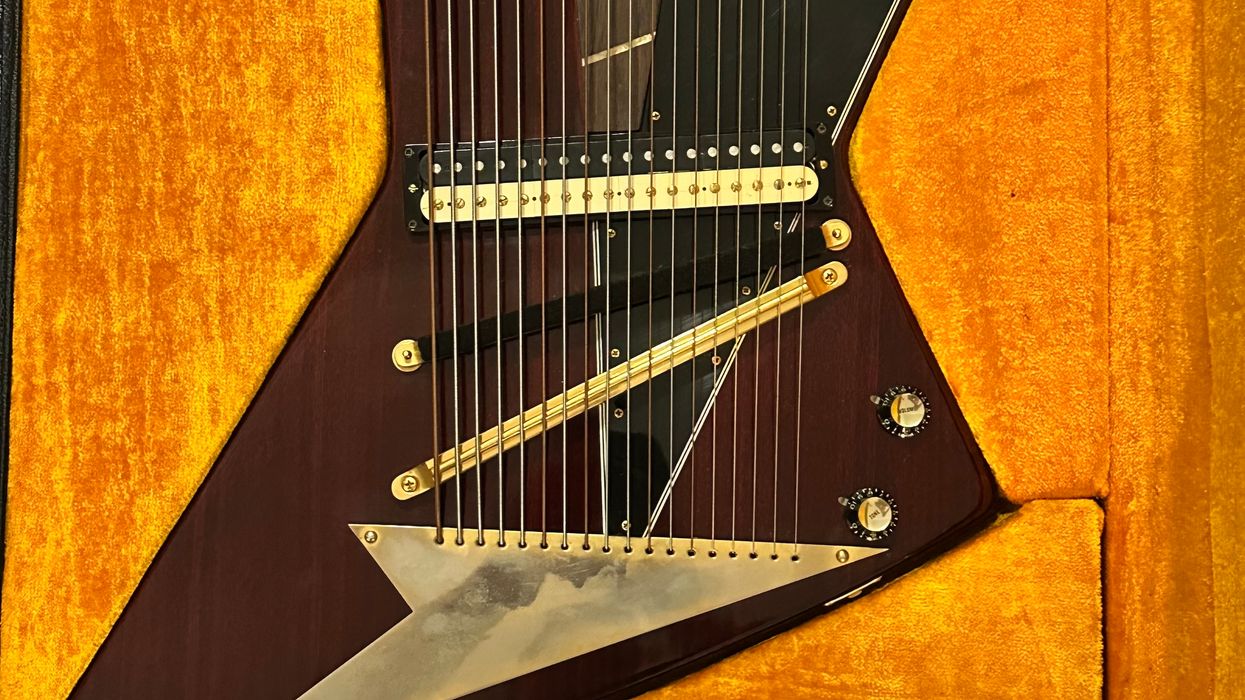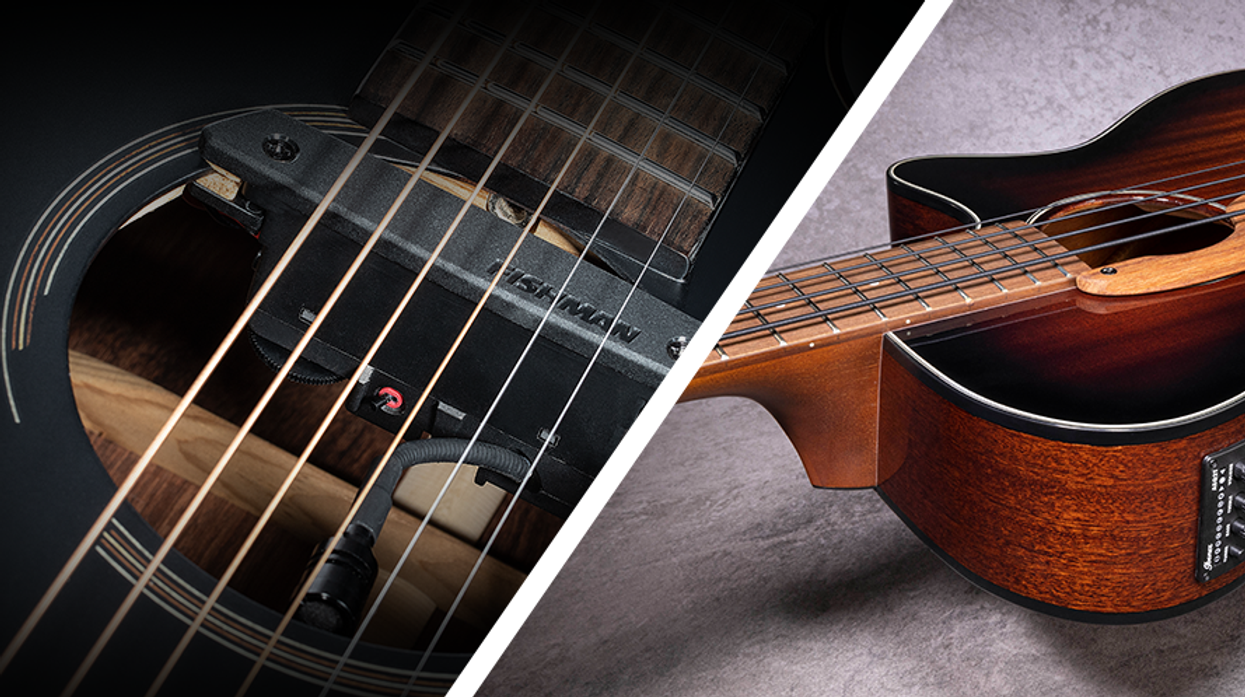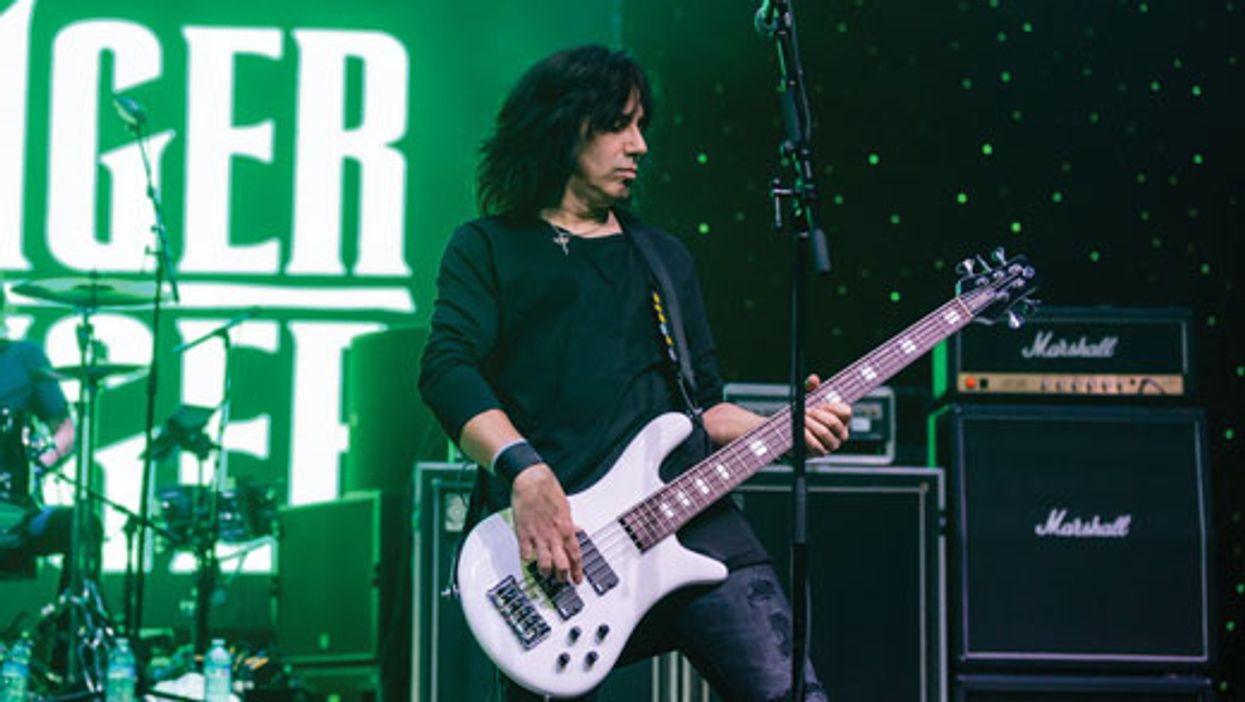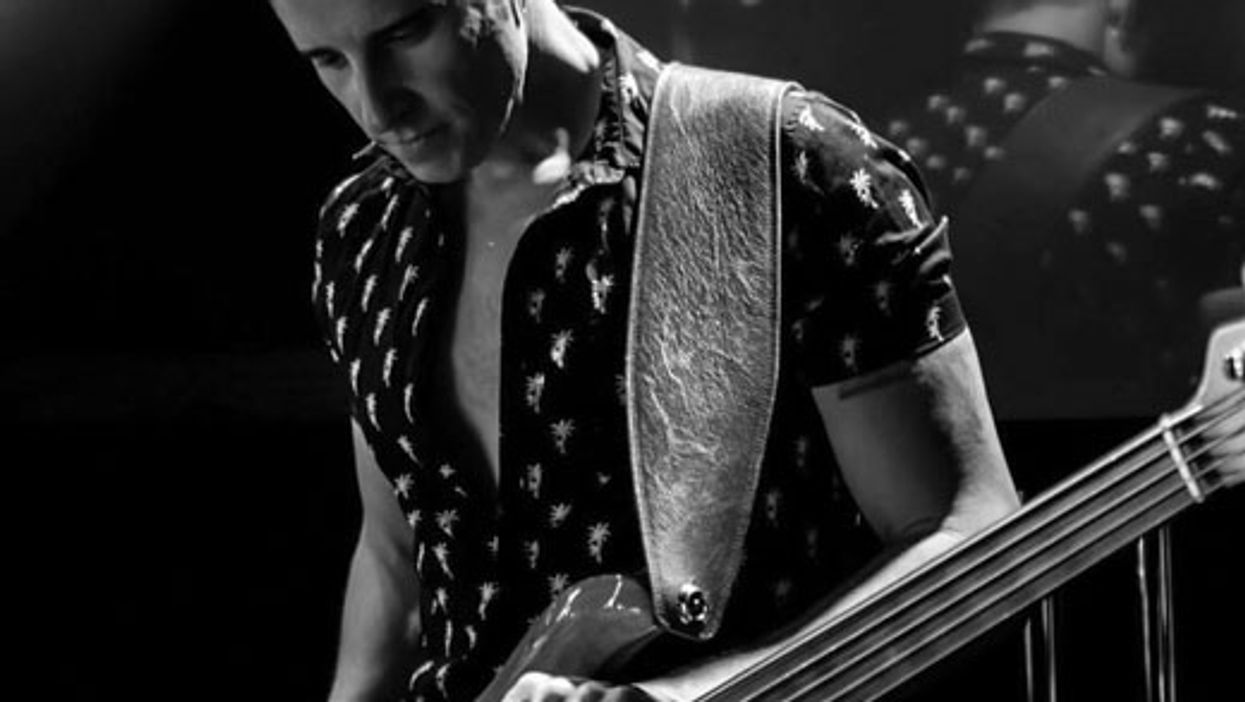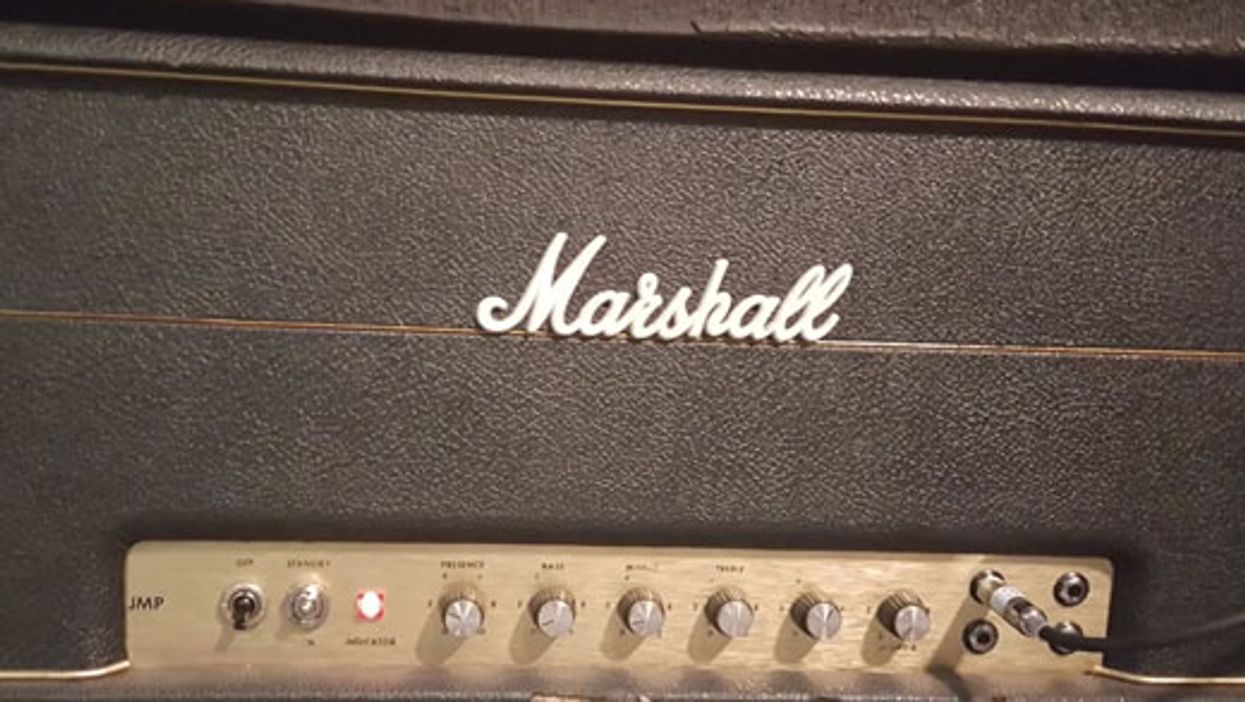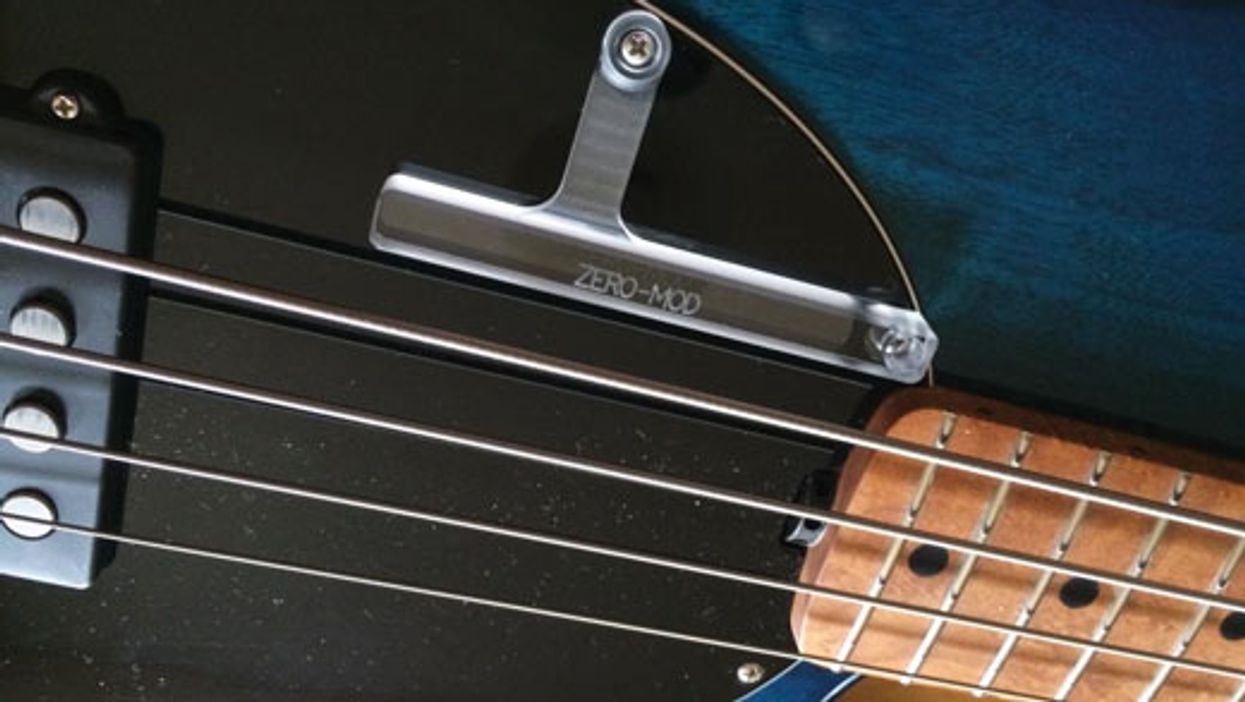In my January 2011 column,
we began exploring ways
to help bass players keep their
hands healthy. In that first
installment of our two-part
series, I discussed the fretting
hand and also pointed out
how much of what I’ve learned
about electric-bass hand care
comes from my years of exploring
upright. If you missed this
column or want to review the
material, you can read it here.
Now we’ll focus on the
right hand. In caring for it, our
foremost goal is to develop a
relaxed and natural position. I
play fingerstyle with two fingers
almost exclusively, so I’ll
direct my comments to that
technique. If you’re a slapper or
a pick player, think about how
you can adapt these ideas to
your method of playing.
To begin, I think it’s crucial
to keep the right hand open
when playing fingerstyle bass.
As soon as the other fingers fold
into the palm, muscles tighten
up in the hand—and eventually
it will begin to hurt. Likewise,
it’s important to keep the hand
relatively straight and in line
with the arm. I like to imagine
my right arm floating over the
bass rather than resting my forearm
on the body edge or the
face. This helps keep the wrist
straight and aligned with the
arm. Conversely, when the hand
rests on the upper body, the
wrist must bend while plucking
the strings, and again, things
tighten up. Floating the right
hand also keeps pressure off the
underside of the arm and allows
the arm muscles to work freely
with the fingers.
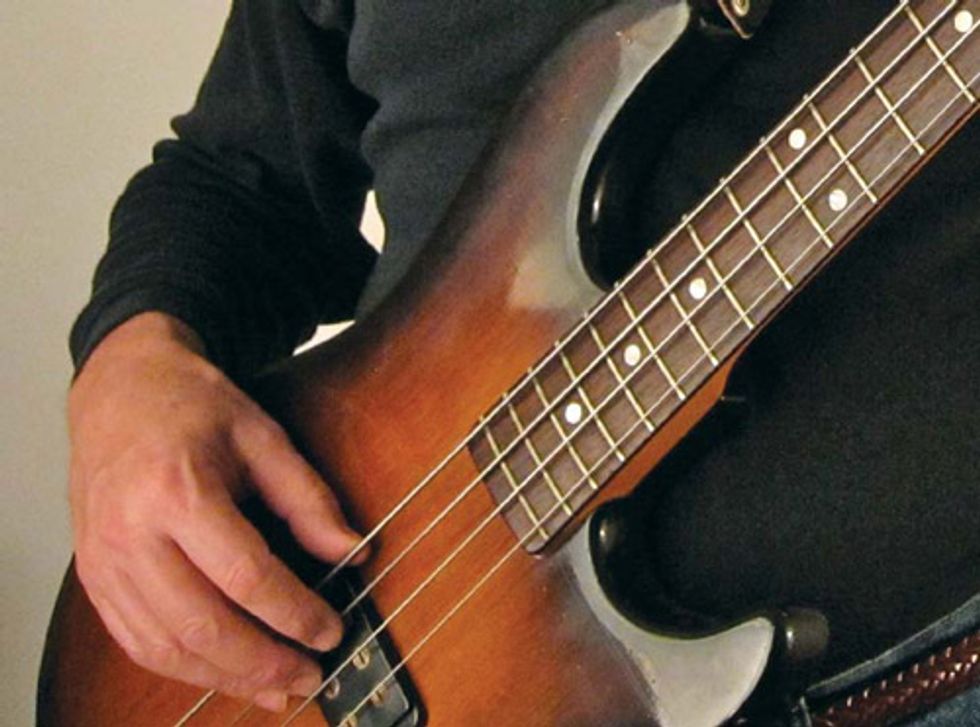
To keep your picking hand relatively straight and in line with your arm, imagine that your arm floats over the bass, rather than resting on the body edge or face. Also, resting your thumb on the E string—rather than on the pickup or body—encourages a relaxed, floating hand. Photo by Holly M. Berkowitz
Along these lines, I’ve found
that resting my thumb on the
E string—rather than on the
pickup or body—encourages a
relaxed hand that floats much
more easily. A side benefit
is that the E string is always
muted when not played, which
keeps your notes cleaner and
the sound more focused.
Another point: If you’re playing
faster, that doesn’t mean you
need to play harder. In fact, the
opposite might be true—when
you’re playing a fast tune, it’s
harder to keep the picking hand
relaxed. Playing harder adds to
the stress on your hand. I’ve
noticed there’s a tendency for
many bassists to play too hard.
Besides straining your hand and
causing blisters, this makes the
volume of your notes uneven
and can even cause distortion
on the attack of the notes. If
you think you might be playing
too hard, try backing off a little
to see if your note attack still
sounds adequate. Your hand
will thank you—as will your
sound tech.
Besides avoiding misuse, try to
protect your calluses. You probably
can’t use playing bass as an
excuse to get out of washing dishes,
but if you do a lot of dishes
by hand, consider wearing rubber
gloves. Likewise, when doing
yardwork, wear work gloves—
cuts and splinters are uncomfortable
or downright painful when it
comes time to play!
I tend to keep my fingernails
clipped short, especially on the
right hand. I’ve noticed that
once the nail on my middle
finger grows out, it’s hard for
my fingertip to contact the
string without hitting it with
the fingernail, and that’s not
a sound I’m after. Sometimes
I’ll get a little tear or split in a
fingernail, so I always keep a
nail clipper and emery board in
my gig bag, as well as a couple
of Band-Aids.
The next time you play or
practice, think about how you
use your hands and how you
care for them. To skillfully play
a demanding instrument like
electric bass, your fingers and
arm and hand muscles need to
feel their best.

a bassist when the sun
goes down. He plays
upright and electric bass
for blues, jazz, orchestra,
and musical theater.
Contact him at profdanb@gmail.com.





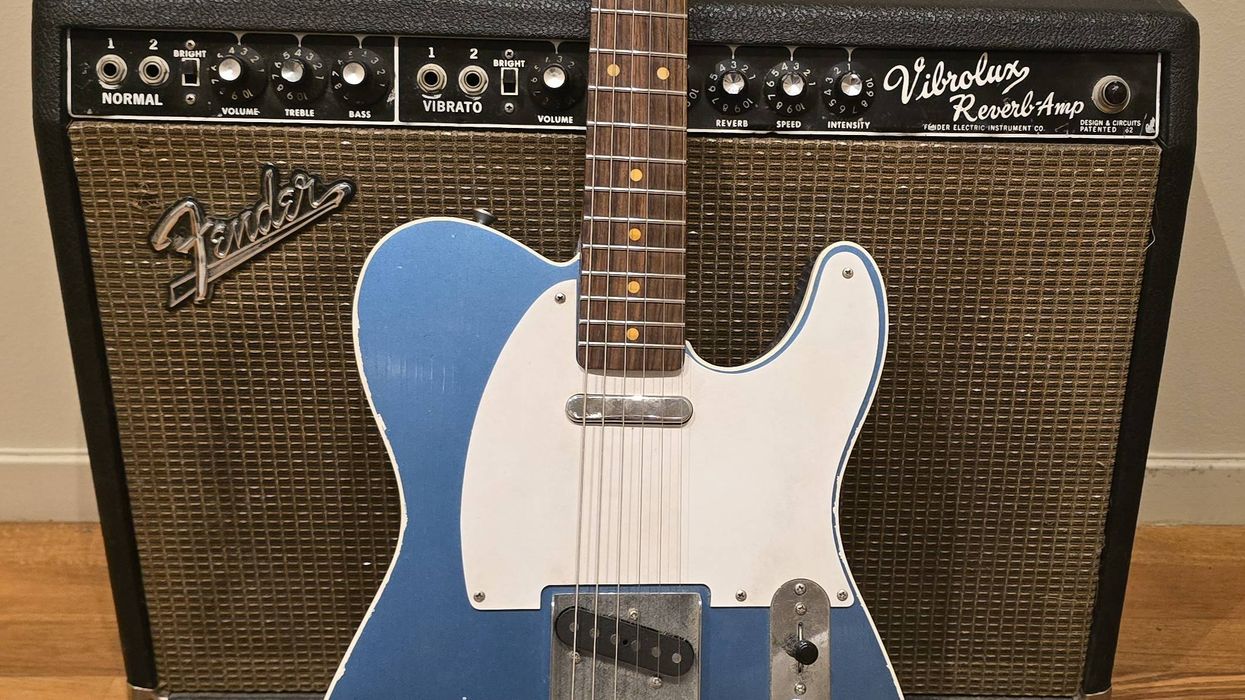


![Rig Rundown: Russian Circles’ Mike Sullivan [2025]](https://www.premierguitar.com/media-library/youtube.jpg?id=62303631&width=1245&height=700&quality=70&coordinates=0%2C0%2C0%2C0)
